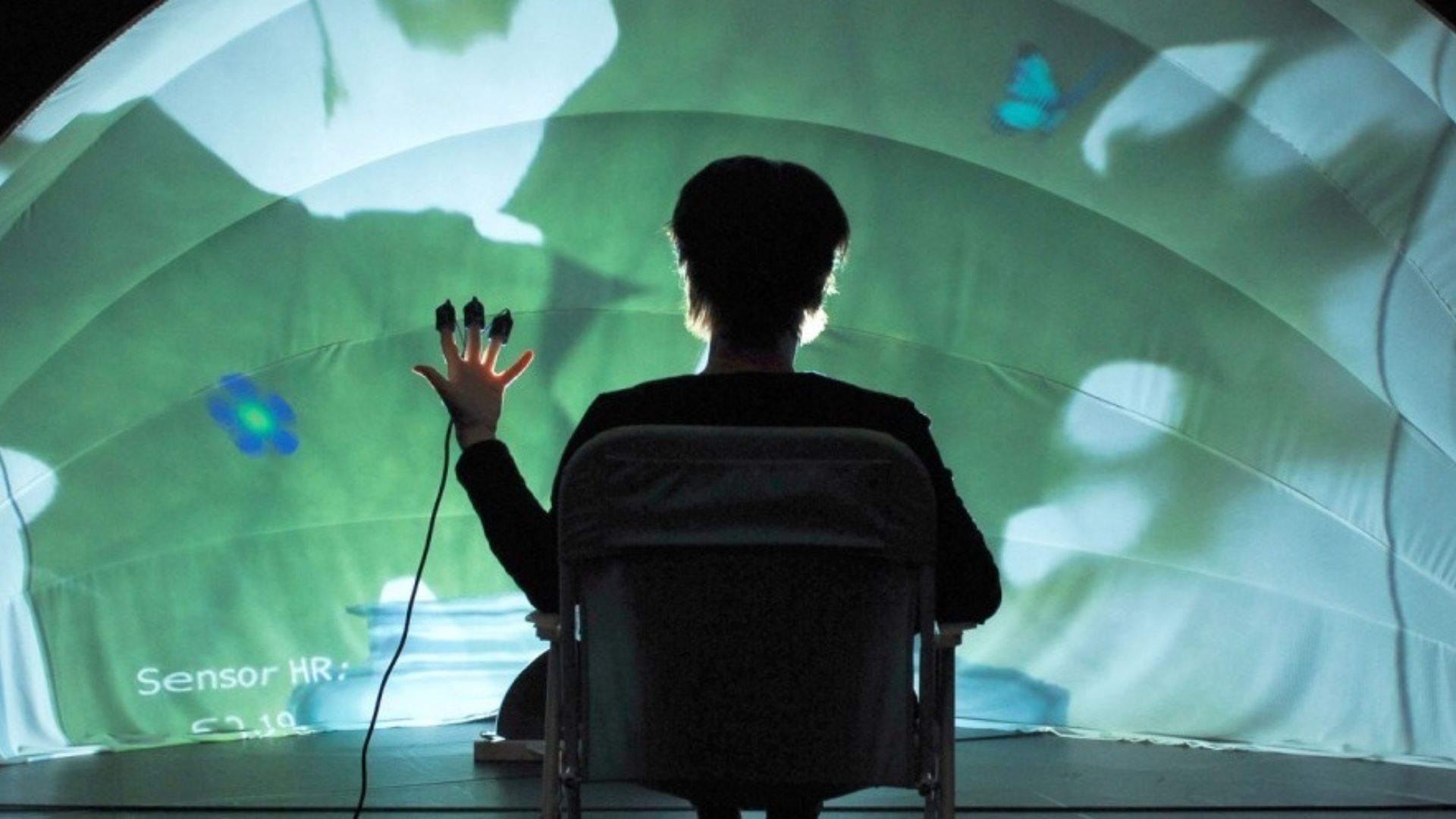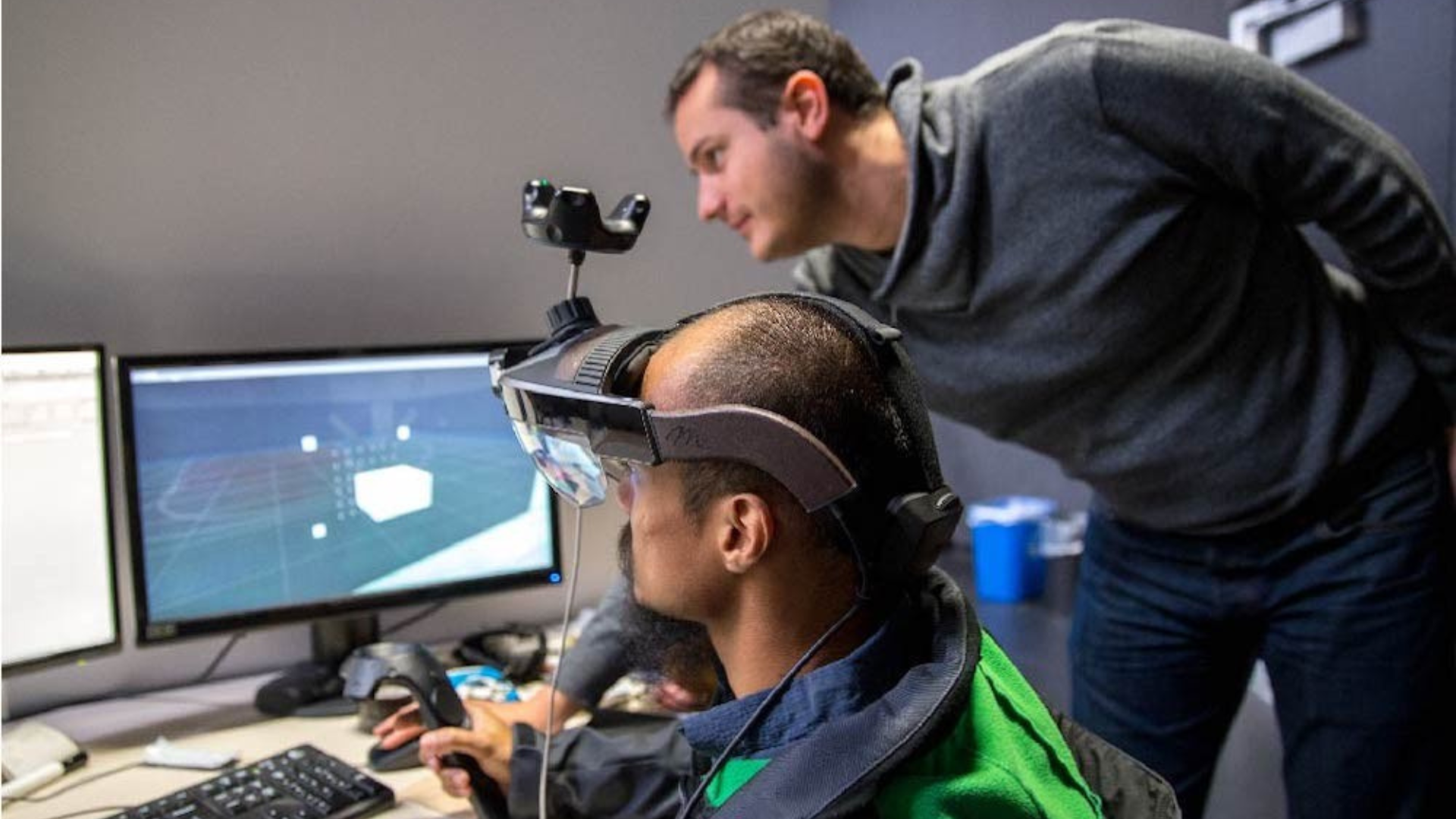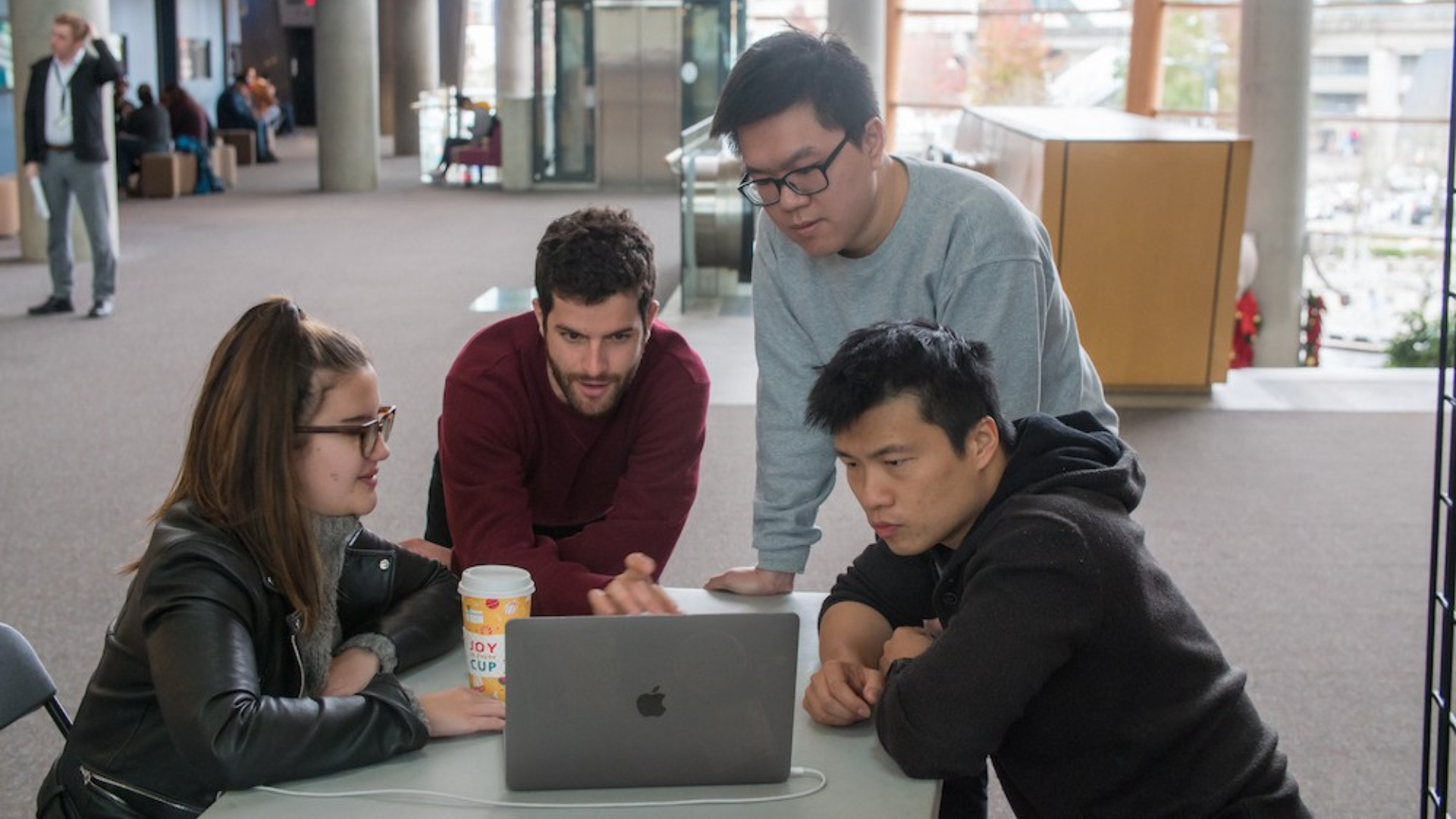SFU Debuts a New Micro-Credential Program for In-Demand Tech Skills
Higher education is going modular – and Simon Fraser University is the latest B.C. institution to tap the trend. The university’s School of Interactive Arts and Technology (SIAT) has introduced a new micro-credential program in Human-Centred AI and Creative Technology.
The SIAT program joins a growing list of micro-credentials that DigiBC has helped get off the ground around the province, including programs at Vancouver Community College, Centre for Digital Media, BCIT, and Emily Carr University of Art and Design.
Located at SFU’s Surrey Campus, SIAT is an interdisciplinary, research-focused school that prepares students to play leading roles in creative technology. Its programs bring together the science of human experience, the analysis of media and culture, the creation of experimental artwork and the implementation of new technologies.
The first series of SIAT micro-credential courses is set to run in the fall 2025 semester.
“It’s great to see SFU introducing new educational pathways to support job growth and the changing demands of the creative tech workplace,” says DigiBC Executive Director Loc Dao. “DigiBC is excited to connect educators with creative technology experts to ensure micro-credential curriculum development keeps pace with industry needs and technology shifts.”
In its quest to support the development of micro-credentials provincewide, DigiBC provides educational institutions with industry support, curriculum input, funding application support and more. “Creating these programs requires advanced collaboration between post-secondary institutions, government and industry – which is invaluable for the continued success of our sector,” adds Dao.
SIAT’s Approach to Micro-Credentials
Micro-credentials are short, skill-focused courses designed to meet specific industry needs. In SIAT’s case, the micro-credentials leverage pre-existing courses that were previously only available to students pursuing a bachelor’s degree.
SIAT’s micro-credential model is designed to be stackable, meaning learners earn digital badges for each completed course, and those badges can be combined and applied toward a certificate, or even a bachelor’s degree if desired. “What we’re finding, increasingly, is that people want to be students, but don’t want to buy into a full bachelor degree now, or they just need one particular skill,” says SIAT professor and AI expert Philippe Pasquier.
Pasquier emphasizes the enhanced security of digitized credentials over their traditional paper-based counterparts, and envisions a future where all educational credits are digitized. “In a sense, the credential is a non fungible token (NFT), and we have excellent technology to deal with this,” he says. And with Canadian universities currently consulting on the creation of an education blockchain, digital badges may soon be standardized and transferable among institutions – stored in a personal digital education “wallet.”
Flexible Learning for Working Professionals
Recognizing that many students are balancing work and study, the SIAT micro-credential program is also structured to be flexible. Many courses run in the evenings and on weekends, allowing professionals to hone their skills outside work hours. The result is a blend of regular and continuing education that welcomes industry professionals into the classroom alongside academic students.
“There’s a real benefit to mixing professionals with the young generation of students,” says Pasquier. “There’s something rejuvenating about sitting next to young people who are on top of what’s happening right now in the world. And likewise, for our students to be sitting with professionals is a really good idea.”
The move to micro-credentials will also be key in helping professionals keep up with the pace at which technology is currently evolving. This is especially true in the case of AI, where the landscape changes dramatically almost month to month. “It’s no longer true that a degree will serve you for the next four years of your professional life,” says Pasquier.
“Programs that align with industry demands are incredibly valuable because they focus on practical, real-world skills. Learning by doing – whether through class projects, internships, or co-ops – makes the transition from student to professional much smoother.”
–Cassey Peng, SIAT Alumnus (2020) & Product Designer, Later
SIAT’s Human-Centred AI Program
AI is reshaping every industry, and the creative tech sector is no exception. What sets SIAT’s Human-Centred AI program apart – and makes it a perfect candidate for micro-credentials – is its direct link to industry innovation.
All courses are taught by research faculty and graduate students who are actively working with major tech companies. Pasquier’s own client list includes the likes of Microsoft, Google and Huawei. “Students get face time with people who are literally defining the field of AI as it moves forward,” he says.
Vanessa Utz, SIAT PhD student and instructor, says the Human-Centred AI program addresses an under-served need for practical guidance on human-machine interaction in the industry.
“What we’re seeing, as these technologies are coming out, is that there is not enough attention being paid to the human-centered aspect,” she says. “Understanding how we’re engaging with these tools, and how we can incorporate them into our design practice workflow, is incredibly important.”
The SIAT Human-Centred AI Micro-Credential program currently includes four courses:
- Basics of AI – Foundational principles and applications
- Data Science for Creative Tech – Practical data handling and analysis
- Generative AI & Computational Creativity – Exploring AI-driven creativity
- Special Topics in AI – Advanced AI concepts tailored to industry needs
Participants can take individual courses as standalone credentials, complete all four to earn a Micro-Certificate in Human-Centered AI or put the credits toward a bachelor’s degree.
My time at SIAT allowed me to form a broad tool set. My work in design-focused, portfolio project-oriented courses highlighted my ability to accomplish industry-standard work. It was my gateway into securing internships at LinkedIn, Google, Meta, Uber, and SAP.
–Brandon Lal, SIAT Alumnus (2020) & Senior Product Designer, LinkedIn
The Future of Learning
The SIAT micro-credential program launches in fall 2025, with enrollment opening soon. To learn more and stay updated, visit the SFU Micro-Credentials page.



